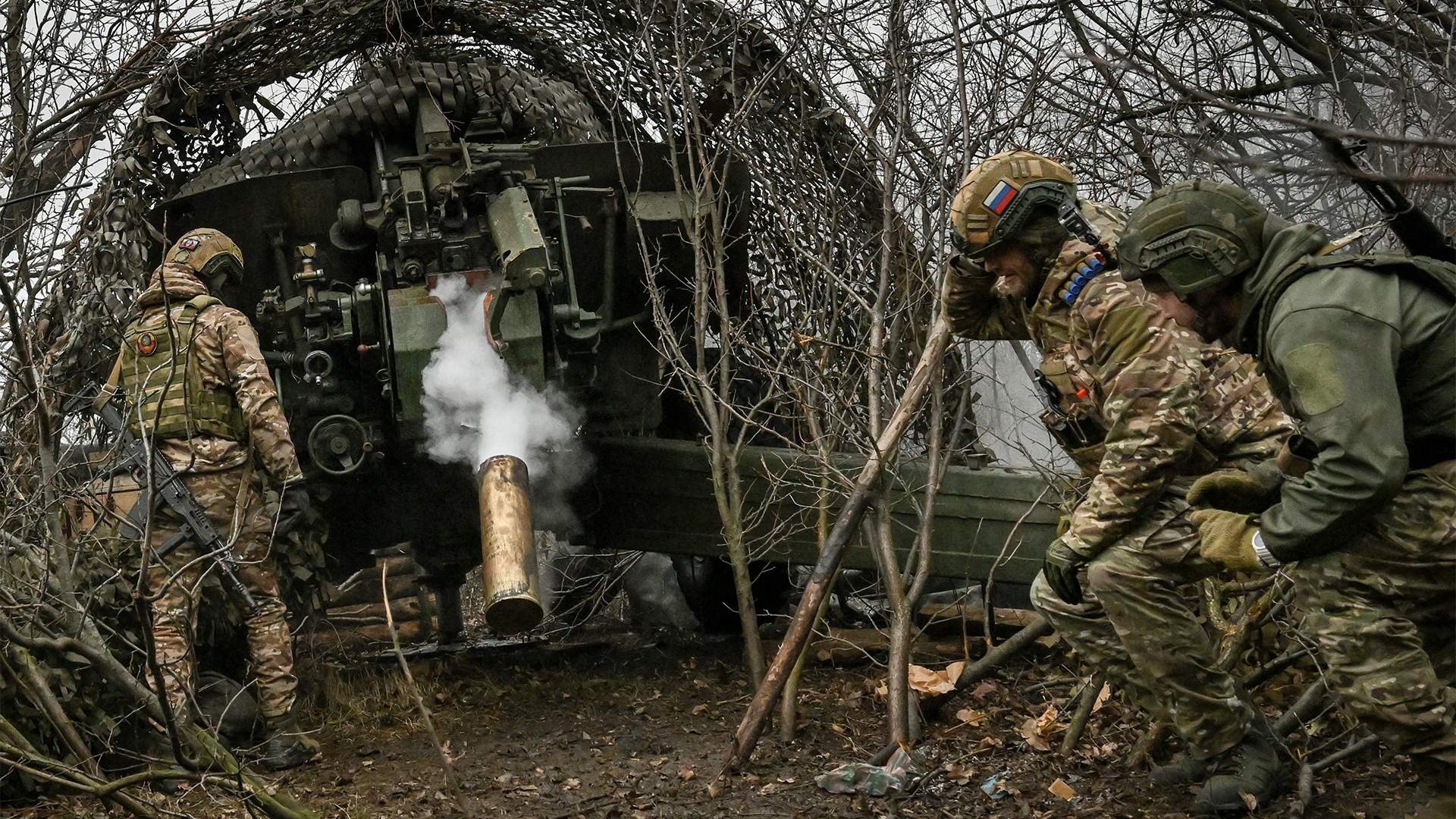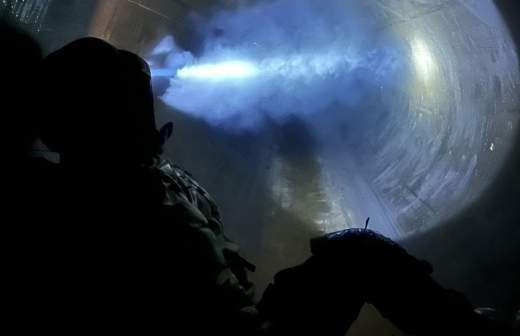Deep retraining: how do submariners fight in their combat zone

Today, people of various professions and destinies, representing almost all branches of the armed forces of our army, are doing their duty in the SVO zone. Including such an exotic military specialty for a ground military operation as submariners. What life paths have brought these people to the forefront, what kind of work they do here and what results they have achieved — in the Izvestia article.
From the submarine fleet to the artillery
My first interlocutor, Oleg with the call sign Navigator, was born in Vladivostok. I grew up and was brought up in an ordinary working family and did not dream of the submarine fleet in my childhood. After graduating from high school, he completed military service as a radio telegraph mechanic. After being discharged from the reserve, he decided to become a professional military man. Initially, I was going to join the military police, but it was just being created, and the registration took a decent amount of time.
"While this process was going on, one of my friends asked me if I would like to serve on a submarine. It became interesting to me. I went to talk to the commander of the B-260 Chita boat. A week later, I already signed a contract, taking up the position of electrician," Oleg says about how his career in the submarine fleet began.
In 2014, the young man entered the Pacific Higher Naval School named after S.O. Makarov. In 2019, he graduated with his first officer rank. "During the assignment, I wanted to return to the 19th Submarine Brigade. They supported me, and I became an engineer in a navigational combat unit," Oleg recalls, adding that during his three years of service on the boat he had been on many long trips. Several times, he and his comrades found themselves in extreme situations.
"Now I don't want to point out the small details and details of those incidents. I will say one thing: the crew of a submarine is one family. There are no small things there, and everyone is responsible for each other. Therefore, we tried to do our work efficiently, getting out of difficult situations with honor," the submariner officer emphasizes.
A special operation. The homeland cannot be defended by three
So he served until 2022.
"When the special operation in Ukraine began, we were asked which of the crew wanted to go on a business trip to the free zone. I didn't think for a long time, to be honest. I expressed a desire right away. Some even talked me out of it. I smoothly prepared my relatives. As a result, in September 2022, I ended up at the location of the 155th Marine Brigade," the Navigator clarifies.
Before coming "for the ribbon", he spent a month undergoing retraining at a training ground in Primorsky Krai. He studied for a temporary position — commander of the SAU-2S1 gun crew.
"After the course, I was already assigned to the 40th Marine Brigade. Two more officers arrived with me. The battery commander, seeing that we were experienced, appointed me to the position of platoon commander. Three weeks later, I was already in the combat position of the Yuzhnodonets special operation area and commanded the batteries personally," Oleg notes.
According to him, he strongly remembers the baptism of fire, namely the first serious battle.
"We received a task in the area of Velikaya Novoselka: to work on a target at a distance of about 15 km from it. But we couldn't reach the target from our positions, so we rolled a couple of kilometers to the north. We took up a position, brought up the battery and began active combat work. After firing 18 rounds and destroying the target, they returned fire on us. Large—caliber mortars began to work," the officer recalls, adding that the very first shell, the vibration of which he felt, fell from him about 20 meters away.
"It was migratory, so the fragments went further away from the place of its fall, and not back in my direction. I had to quickly change my position. In general, the task was completed, the target was destroyed and the advance of our assault forces was supported. In the future, there were many different combat jobs. In particular, our unit took an active part in the storming of the settlements of Urozhodnoye and Ugledar. During the special operation, he was awarded the Zhukov and Suvorov medals," says the source.
At that moment, I asked Oleg to compare his two military specialties: a submariner officer and an artilleryman.
"If we compare service in the submarine fleet and in the artillery, I won't say that it's better or easier somewhere. Everywhere has its own peculiarities, nuances, and charms. There are also some negative aspects. It's just that for me, it's all about protecting the Motherland. And in this, I don't choose what is better or worse. I'm just doing my job. And I try to do it as well as possible. As one of my teachers used to say, "The motherland cannot be defended by three," he draws attention.
The officer returned from his military service in Vladivostok in January 2024.
"Not by my own free will, by the way. The commander of our brigade insisted on my return. Now I'm waiting for a new business trip to the special operation zone. This time it should be placed at the disposal of a motorized rifle unit," Oleg concludes.
The coach is a master of sports of international class
My second interlocutor, Alexei, a submariner officer with the call sign Trainer, was born in the Bryansk region, the city of Karachev, into the family of a hereditary officer. As a child, he did not dream of becoming a submariner. After graduating from high school, he entered the Military University of the Ministry of Defense of the Russian Federation at the Faculty of Culture and Journalism.
"I studied in the specialty of cultural studies. After five years as a cadet in Moscow, on his own initiative, he decided to begin officer service in Petropavlovsk-Kamchatsky, in the diesel submarine brigade. Why? I do not remember. I just wanted to, that's all. His first position was as an officer for public and state training. I did this job on shore for nine months, but all the time I wanted to go to the ship," Alexey recalls.
As a result, he was appointed deputy commander of a large diesel submarine of the Varshavyanka class.
"Later, I served in the Submarine fleet for eight years in various positions, rising to deputy commander of the submarine brigade. In 2010, he transferred to the city of Vilyuchinsk to the 25th Submarine Division, where he took up the position of Deputy commander for personnel work. There have already been other nuclear—powered submarines here. After serving on them for three years, he received an offer to become deputy commander of a new military formation armed with Borey—class boats," the officer notes.
As a result, after some time, he became deputy commander of the nuclear submarine Vladimir Monomakh.
"Then we had to assemble the crew from scratch. And we put it together. We conducted training of the personnel. In parallel, they took part in the construction of the boat, which took place in Severodvinsk. Then they conducted sea trials of the ship. In December 2014, the flag was ceremoniously raised on the Vladimir Monomakh boat, and the ship was accepted into the Russian Navy. After that, we drove him to the village of Gadzhievo, where tests of the nuclear—powered ship began to take him on combat duty," he says, recalling that he and his crew had made numerous trips on this ship.
"We often met with a potential opponent. Our boat has always been monitored by NATO special services. I'll say this: getting a boat out of its native harbor is a whole military operation that includes a lot of maneuvers," says the submariner, noting that he once managed to make out the faces of Norwegian pilots who flew over a Russian boat at an altitude of 25 m.
The officer recalls that in 2016 they made an ice crossing over the North Pole to Kamchatka. For this trip, the boat's crew was awarded state awards.
"An interesting incident occurred at the North Pole. The boat surfaced in the polynya, and a polar bear approached it. One of the commander's assistants had sweets in his pocket, which he gave to the beast. Then they brought more sausage and bread to Mishka. So we basically fed a polar bear at the North Pole," says Alexey, smiling.
In 2018, he retired from the Navy for health reasons and worked as a civilian until 2024. He became an international master in powerlifting.
Stormtrooper, commander on HIS OWN
When the SVO began, Alexey came to the military enlistment office and wrote a statement.
"At that moment, I received an answer that there were no positions in my military accounting specialty yet. Time passed, and one day my classmate at the military university called me. They offered to join the Redoubt volunteer corps. I agreed. He was hired as a stormtrooper. Everyone goes through this," the Coach notes.
But later, as an experienced officer, he nevertheless took the position of chief of staff of one of the corps detachments.
"After that, I was transferred to the corps headquarters. We fought in the Ugledar direction. They took the village of Urozhodnoye, stormed Ugledar. In August 2024, we were transferred to the Kursk region in the Korenevsky direction. They took up positions in one of the wooded areas near the village of Olgovka. Then there was heavy fighting in the area," Alexey recalls the combat episode.
His unit was tasked with taking certain lines, and the fighters completed it.
"The next day, we gained a foothold on the outskirts of Olgovka. They came under serious enemy attack there. First there was shelling, then an attack by FPV drones, and two more APU tanks rolled out at us and began hitting us. As a result, we repelled all the attacks and in two days occupied the entire settlement," the officer stressed, adding that the volunteers under his leadership participated not only in the fighting.
"We actively worked with the local population, provided all possible assistance to people," the Coach said.
Unfortunately, in November 2024, he was injured and had to leave the special operation area. He is currently undergoing treatment in one of the medical institutions.
Переведено сервисом «Яндекс Переводчик»








